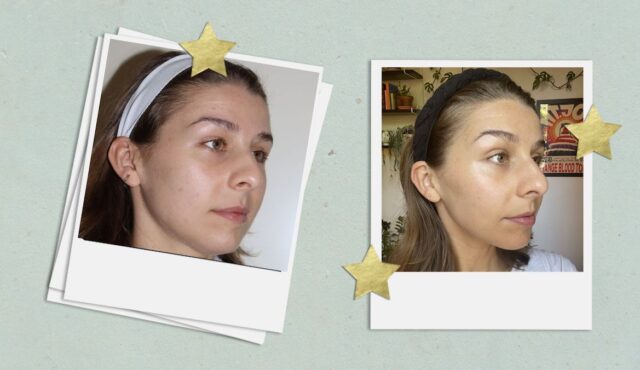“When people decide that they want to use a lot of products, it can lead to acne, different forms of eczema, and perioral dermatitis, which can stoke rosacea,” says Mona Gohara, MD, associate clinical professor of dermatology at the Yale School of Medicine. “At the end of the day, when you’re trying to solve a skin problem, not committing to one simple skin routine can actually feed the fire a little bit.”
To bring my skin back to its happy homeostasis, my derm suggested I whittle down my routine to just the essentials, and limit myself to one “fancy” skin-loving treatment. Soon after that appointment, I was introduced to double board-certified facial plastic surgeon Jason Diamond, MD, whose work you probably recognize: The Kardashians, Chrissy Teigen, and more celebs are devoted clients.
Though he’s known for his plastic surgery expertise, Dr. Diamond also created the InstaFacial, a three-part, $5,000+ in-office treatment—which I got to try, and honestly, I’d shell out that kind of cash to do it again—that involves a light laser treatment, microneedling with platelet-rich-plasma (AKA PRP, which you may know as the “Vampire Facial”), and a collagen mask.
This sought-after—but largely inaccessible—facial treatment sparked Dr. Diamond’s foray into skin care. Enter: His new line, Metacine.
“Inspired by the InstaFacial and the clinical evidence of the skin’s ability to repair and rejuvenate itself, I wanted to formulate a skin treatment system that mimics the efficacy of the treatment at home,” he says. Essentially, the two-product system asks you to leave the rest of your skincare (except your moisturizer and SPF) at the door. Color me intrigued. I got to try Metacine for myself, and TL;DR, I’ll use this stuff until I die.
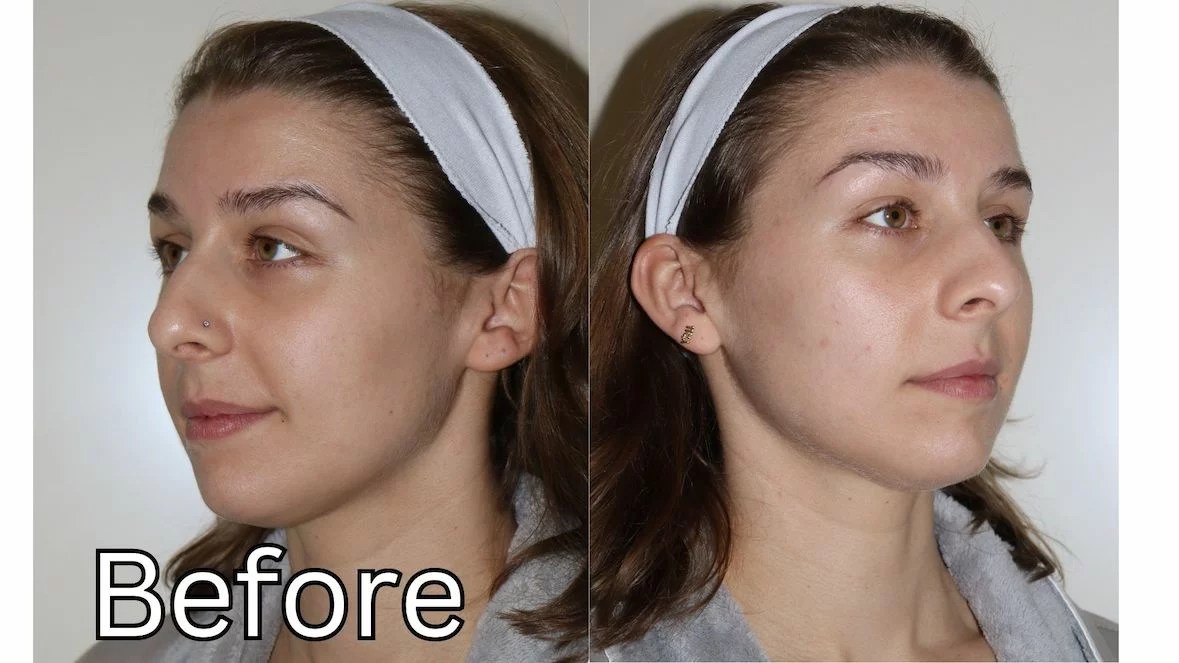
“Our body has natural mechanisms for everything, like creating collagen, initiating skin cell turnover, and providing hydration,” says Dr. Gohara. The goal of the in-office InstaFacial is to stimulate collagen, elastin, and hyaluronic acid production and jump start the skin’s natural regenerative mechanisms. The goal of the two Metacine products is the same, just minus the office—and price tag.
“The Plasma and Emulsion work together to maximize the effects of each ingredient,” says Dr. Diamond. The system is formulated with a handful of hero ingredients like synthetic growth factors, peptides, niacinamide, retinoids, and hyaluronic acid.
To me, a huge benefit is the simplicity of a two-product regimen—and derms tend to agree. “With fewer steps, the routine becomes less of a burden, which may improve compliance,” says Brendan Camp, MD, a New York City-based double board-certified dermatologist. “This is important because so much about making skincare work is consistency.”
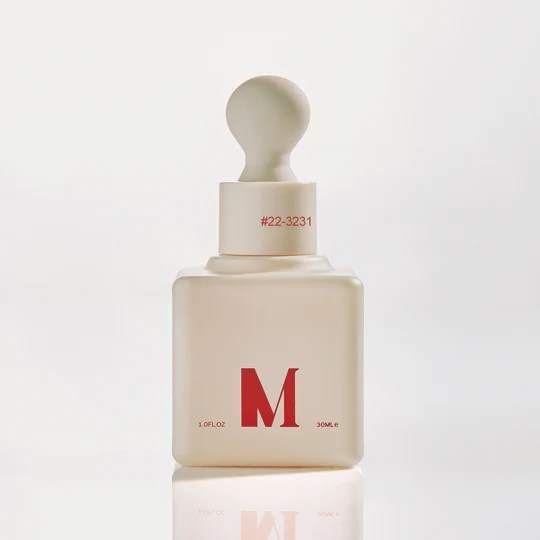
Metacine, Instafacial Plasma — $200.00
The most notable ingredients in the Plasma are bioactive growth factors, which, according to Dr. Diamond, mimic the supposed benefits of PRP treatments. “There’s something in platelet rich plasma called platelet-derived growth factor, which is thought to help stimulate collagen production in the skin,” says Dr. Gohara. Why’s a synthetic version a big deal? Well, retrieving PRP is a somewhat invasive process in which you get your blood drawn, it’s spun around in a centrifuge to separate and extract the PRP, and then it’s applied topically on the skin. So having a non-invasive option you can use every day is an excellent option, since collagen helps the skin stay strong and bouncy.
Beyond those growth factors, the Plasma is also formulated with hyaluronic acid to lock in hydration, as well as peptides. It has a watery, serum texture that goes on smooth and soaks in quickly. It’s bright red in color and has a bit of a funky smell, but I wasn’t too bothered by it. I noticed that my skin looked immediately more hydrated and radiant after applying the Plasma.
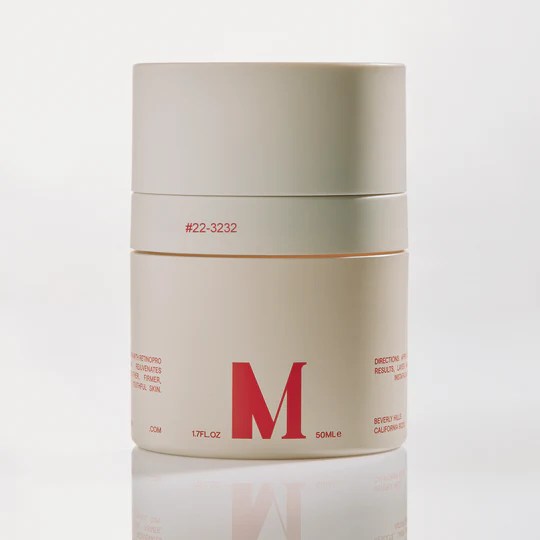
Metacine, Instafacial Emulsion — $350.00
“The Emulsion, rich in ingredients that increase cell turnover and renewal, helps maximize absorption of the Plasma,” says Dr. Diamond. It’s formulated with time-released retinoids as well as lipopeptides (a lipopeptide is a lipid connected to a peptide). Lipids are your skin’s natural fats that help to protect the skin barrier, and peptides are the building blocks of proteins like collagen and elastin. “The idea behind using peptides is that they may stimulate the production of those important skin proteins, which give the skin structure and rigidity,” says Dr. Camp. The retinoids help smooth fine lines. Also among these ingredients is plumping hyaluronic acid and niacinamide.
I love the silky, gel texture of this emulsion, and it’s designed to play nicely with other products, so there’s no pilling if you opt to apply your nightly moisturizer on top of it (which I do often for even more hydration). And though the gel is boosted with retinoids, I didn’t notice any drying effects or “purging,” which can sometimes happen when using more potent retinol-based products.
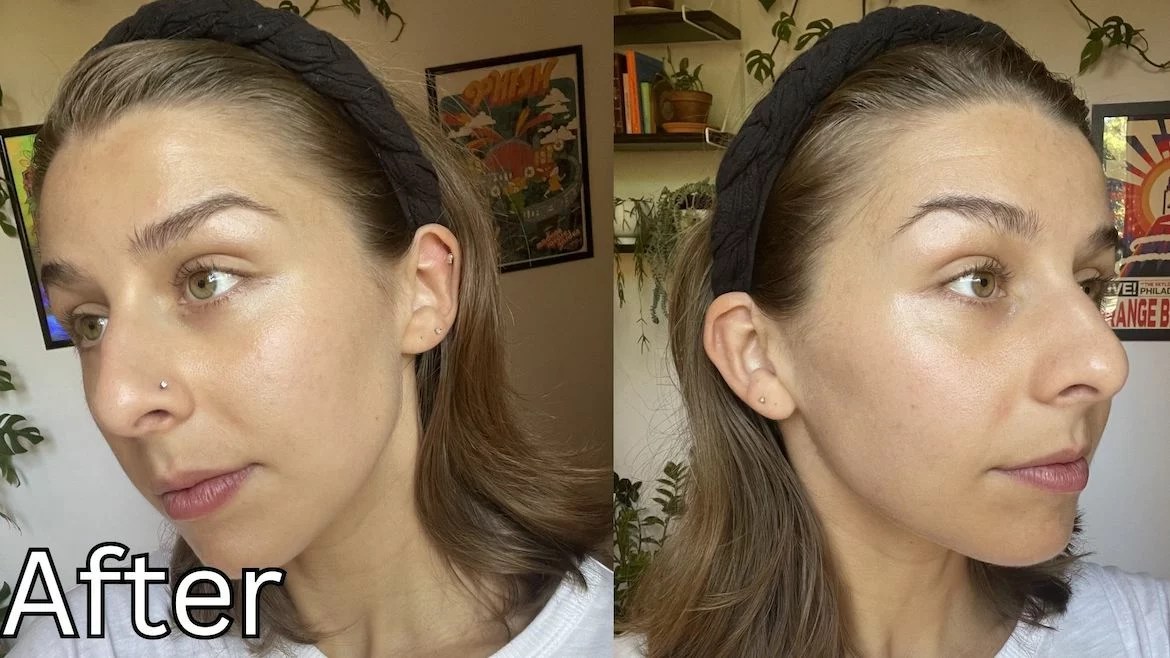
I’ve been using the Metacine products religiously since early May; I’ve restocked the Plasma twice (!) already, and the Emulsion once. To that end, I wish the products lasted longer given the price, and I also wish the Plasma was twice the size, since the Metacine regimen calls for use twice a day. That way I’d be able to restock both on the same schedule.
To keep costs a little bit lower, after two months of testing, I began using the Plasma and Emulsion just once daily at night, and re-implementing my more basic skin care regimen in the morning (barrier-protecting moisturizer, eye cream, and SPF).
After more than three months using the products, I am floored by the improvement in my skin and can say honestly that no other skin-care product has ever made this much of a noticeable difference. I’ve seen signs of dehydration, congestion, hyperpigmentation, and uneven texture diminishing over time when using these products. I had the most dark spots on my cheeks, where I get congestion and tend to pick my skin. After a month, they faded significantly. What’s more, my overall complexion looks more even in tone and has a healthy radiance to it.
All of this is not to say I suddenly stop breaking out before my period or don’t still get blackheads, but I do feel much more radiant and confident leaving my home with a bare face. The products are also a pleasure to use, and I love how they simplified my routine. I think my dermatologist would be pretty pleased, too.
Our editors independently select these products. Making a purchase through our links may earn Well+Good a commission.

